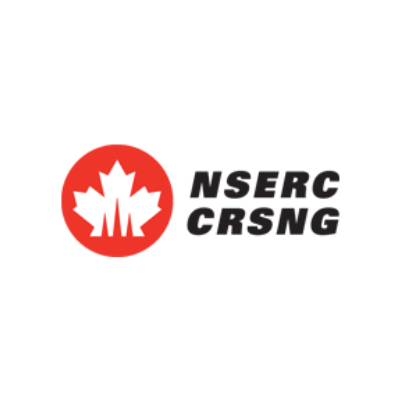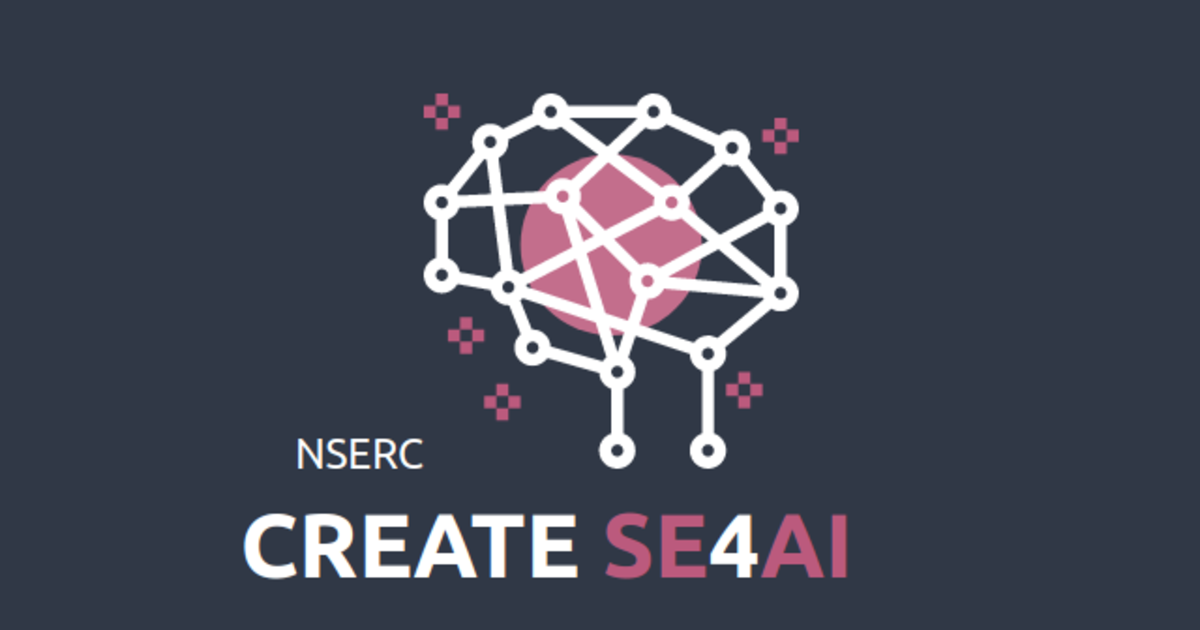About the event
“Software for all and by all” is the future of humanity. AIware, i.e., AI-powered software, has the potential to democratize software creation. We must reimagine software and software engineering (SE), enabling individuals of all backgrounds to participate in its creation with higher reliability and quality. Over the past decade, software has evolved from human-driven Codeware to the first generation of AIware, known as Neuralware, developed by AI experts. Foundation Models (FMs, including Large Language Models or LLMs), like GPT, ushered in software's next generation, Promptware, led by domain and prompt experts. However, this merely scratches the surface of the future of software. We are already witnessing the emergence of the next generation of software, Agentware, in which humans and intelligent agents jointly lead the creation of software. With the advent of brain-like World Models and brain-computer interfaces, we anticipate the arrival of Mindware, representing another generation of software. Agentware and Mindware promise greater autonomy and widespread accessibility, with non-expert individuals, known as Software Makers, offering oversight to autonomous agents.
The SE community will need to develop fundamentally new approaches and evolve existing ones, so they are suitable for a world in which software creation is within the reach of Software Makers of all levels of SE expertise, as opposed to solely expert developers. We must recognize a shift in where expertise lies in software creation and start making the needed changes in the type of research that is being conducted, the ways that SE is being taught, and the support that is offered to software makers.
To register for the event, please follow this link. The event will be held on March 28 and 29 at the Tokyo Hilton Bay Hotel. On March 30 we will have a community excursion to enable stronger community building and extensive discussions. You must register by March 1st to join the execution and do note that excursion has limited availability so the spots might run out even before March 1st.
Unfortunately, we are not able to provide invitation letters for Japan visas at this time. However, please check the Japanese embassy in your country as nationals from many countries might not require one.
Why attend?
The impact of Foundation/Large Models (FM) on the Software Industry and on Software Engineering (SE) is breathtaking, especially given the rapid and impactful progress in this nascent field. FMs promise to dramatically change and improve how we develop software (FM4SE) as well as the actual definition of software and the software engineering needs for this new nascent field itself (SE4FM). Join us to explore and define the future of Software (i.e., AIware) in the Foundation Models era of AI as well as the future of Software Engineering with FMware (i.e., FM-powered AIware).
As academics and practitioners alike need to prepare for the FM revolution, it is critical that we kickstart a global dialogue on important strategic future directions and challenges, on important community-wide initiatives and on the shape of Software and SE in the next few years. Such a dialogue requires close interactions between industry and academia.
Furthermore, young professionals and researchers require training in state-of-the-art and state-of-the-future techniques and insights that will guide the future of FM4SE and SE4FM.
The FM+SE Summit will provide lectures and panels by leading industrial and academic experts.
The FM+SE Summit is part of a larger effort of the Software Engineering (SE) community to rethink SE in the era of Foundational Models.
- In 2023, the FM+SE Vision 2030 aimed to jumpstart the AIware community. And the turnout was fantastic! We had 108 attendees (57 from industry and 51 from academia), plus 50+ folks joining in via Zoom. It was a mix of a Dagstuhl with deep discussions and a school with great tutorials and industrial keynotes (around 4 tracks in parallel for two days). The active involvement of industry professionals brought a real-world perspective to the discussions, touching on the genuine pain points faced by practitioners today. Feel free to check out the program, the event recap video and our group photo.
- We have recently established a Steering Committee of Industry and Academic leaders on this topic.
- A Shonan on Foundation Models and Software Engineering: Challenges and Opportunities.
- A new International ACM Conference on AIware to be held in July 2024. Please consider submitting your academic work or industry perspectives to the AIware Conference!
Program
Break
Rethinking Software and SE in the FM Era
-
Software Development Lifecycle in the Era of Foundation Models [25 mins]
 Ipek Ozkaya
Ipek Ozkaya
Software Engineering Institute (SEI), Carnegie Mellon University (CMU), USA and Most Recent Editor in Chief of IEEE Software (the most prominent magazine for software practitioners) -
Rethinking Software Engineering in the FM Era [25 mins]
 Dayi Lin
Dayi Lin
Huawei, Canada
Chair: Emad Shihab, Concordia University
Panel A: Impact of Foundation Models on Developer Productivity [70 mins]
-
Satish Chandra, Google, USA

-
Ipek Ozkaya, SEI, CMU, USA, IEEE Software EiC

-
Dayi Lin, Huawei, Canada

-
Denys Poshyvanyk, William and Mary, USA

-
Alexander Serebrenik, Eindhoven University of Technology, Netherlands

Moderator: Ahmed E. Hassan, Queen's University
Lunch
AIware in Industrial Setting: Challenges and Success Stories
-
Establishing Trust between Developers and Co-pilot [30 mins]
 Thomas Zimmermann
Thomas Zimmermann
Microsoft and ACM SIGSOFT President, USA -
Machine Learning for Software Engineering [30 mins]
 Satish Chandra
Satish Chandra
Google, USA
Discussion [30 mins]
Chair: Yasutaka Kamei, Kuyushu University
Break
AIware for Code Generation and Beyond
-
Towards Crystal-clear Code LLMs: 🌟 StarCoder2 and 🎩 Magicoder [18 mins]
 Lingming Zhang
Lingming Zhang
University of Illinois, USA -
Interpretability of the Code Generation Process of LLMs [18 mins]
 Denys Poshyvanyk
Denys Poshyvanyk
William and Mary, USA -
On the Use of LLMs with Software Dependencies [18 mins]
 Emad Shihab
Emad Shihab
Concordia University, Canada -
Testing the Limits: What Breaks and How to Partially Fix LLM4ASE? [18 mins]
 David Lo
David Lo
Singapore Management University, Singapore -
Do language models really understand code? [18 mins]
 Romain Robbes
Romain Robbes
Laboratoire Bordelais de Recherche en Informatique, France
Discussion [30 mins]
Chair: Zhen Ming (Jack) Jiang, York University
Dinner reception
AIware in SE context: Opportunities and Challenges
-
Towards Code-Aware Code Models [30 mins]
 Baishakhi Ray
Baishakhi Ray
Columbia University and Amazon Web Services, USA -
Automated Software Testing Using LLMs [30 mins]
 Lionel Briand
Lionel Briand
Lero, Ireland and University of Ottawa, Canada
Discussion [30 mins]
Chair: Cor-Paul Bezemer, University of Alberta
Break
FM-generated Code and FMware
-
Examination of the Reliability of Generated LLM code [15 mins]
 Foutse Khomh
Foutse Khomh
IVADO and Polytechnique Montréal, Canada -
Security and Runtime Performance of Code Generated by GitHub Copilot [15 mins]
 Mei Nagappan
Mei Nagappan
University of Waterloo, Canada -
Towards Trustworthiness Assurance of Data-driven AI in the Language Model Era [15 mins]
 Lei Ma
Lei Ma
The University of Tokyo, Japan and University of Alberta, Canada -
QA4AI Guideline for Quality of LLM and Generative Chat AI [15 mins]
 Fuyuki Ishikawa
Fuyuki Ishikawa
National Institute of Informatics (NII), Japan
Discussion [30 mins]
Chair: Weiyi Shang, University of Waterloo
Lunch
Applications of AIware in SE Context
-
Visual Software Quality Assurance Using LLMs [15 mins]
 Cor-Paul Bezemer
Cor-Paul Bezemer
University of Alberta, Canada -
Pilot Study on Using LLMs to Support the Software Development Process in DENSO [15 mins]
 Hiroki Takamoto and
Hiroki Takamoto and  Rieko Takagi
Rieko Takagi
DENSO CORP. and DENSO CREATE INC., Japan -
Software Design Review Using LLMs at Fujistu [15 mins]
 Susumu Tokumoto and
Susumu Tokumoto and  Takasaburo Fukuda
Takasaburo Fukuda
Fujitsu, Japan -
Practical Evaluation of LLMs for Code [15 mins]
 Maliheh Izadi
Maliheh Izadi
Delft University of Technology, Netherlands
Discussion [30 mins]
Chair: Lei Ma, The University of Tokyo, Japan and University of Alberta, Canada
Break
Panel B: Impact of Foundation Models on Software Quality [90 mins]
-
Lionel Briand, Lero, Ireland and University of Ottawa, Canada

-
Ipek Ozkaya, SEI, CMU, USA

-
David Lo, SMU, Singapore

-
Foutse Khome, IVADO and Ecole Polytechnique, Canada

-
Lei Ma, The University of Tokyo, Japan and University of Alberta, Canada

Moderator: Dayi Lin, Huawei
Closing [30 minutes]
Excursion and bird-of-feather meetings
Excursion Itinerary: teamLab Planets & Ueno Park
- 9:00am: Departure from Hilton by bus to teamLab Planets.
- 9:30-11:30am: Visit teamLab Planets: Experience immersive digital art installations and interactive exhibits.
- 11:30am: Departure from teamLab Planets by bus to Ueno Park.
-
12:00-1:30pm: Explore Ueno Park and Ueno Toshogu and enjoy the cherry blossoms (Sakura), cultural insights, and scenic views.
- Participants can choose to have lunch on their own in the vicinity.
- Those who wish to extend their stay in Ueno Park can do so, with flexibility.
- 1:30pm: End of organized activities.
Limited spots available
Self-organized bird-of-feather meetings
Registration
Registration:
The event costs $500 CAD (approx. $350 USD) for students and $800 CAD (approx. $550 USD) for professors and researchers. The cost is $950 CAD (approx. $650 USD) for industry affiliated individuals.Industry registration/supporting:
$1400 CAD (approx. $1,000 USD) support would provide one FREE registration as well as logo and acknowledgement on all event material and website. Please contact us if your organization wishes to send several individuals as we would offer a reduced rate, however, please keep in mind that space is quite limited and we wish to provide access to a wider range of groups.Registration process:
Due to limited spots, please express your interest to register at this link by March 1st, 2024. Notification will be sent out by no later than March 2nd, 2024 with a link to register and pay your registration. You then have one week to pay your registration fee otherwise we will remove your spot to another participant in the waiting list.Accommodation:
Participants are expected to arrange their own accommodations. There are many hotels around the Hilton, in addition to the Hilton itself, which has ample room availability at this moment.Japan VISA:
**NEW** We are now able to request Japan visa invitation letters for registered paid attendees. Once the letter request is approved, we will share the letter asap with you. Please indicate if you will need a visa invitation letter when registering. Please check the Japanese embassy in your country as nationals from many countries might not require one.Event Venue
Hilton Tokyo Bay
1-8 Maihama, Urayasu, Chiba
279-0031,
Tokyo, Japan
Website
Supporters
(pending)
Contact Us
If you have any questions or concerns, do not hesitate to contact us. We hope you can join us in Tokyo this March to plan the FM future of the Software Industry and Software Engineering!
Organizers
Ahmed E. Hassan, Fellow of
ACM/IEEE/NSERC Steacie, Queen’s University
Zhen Ming (Jack) Jiang, York University
Yasutaka Kamei, Kyushu University
Local arrangement chairs
Yutaro Kashiwa, NAIST
Masanari Kondo, Kyushu University





